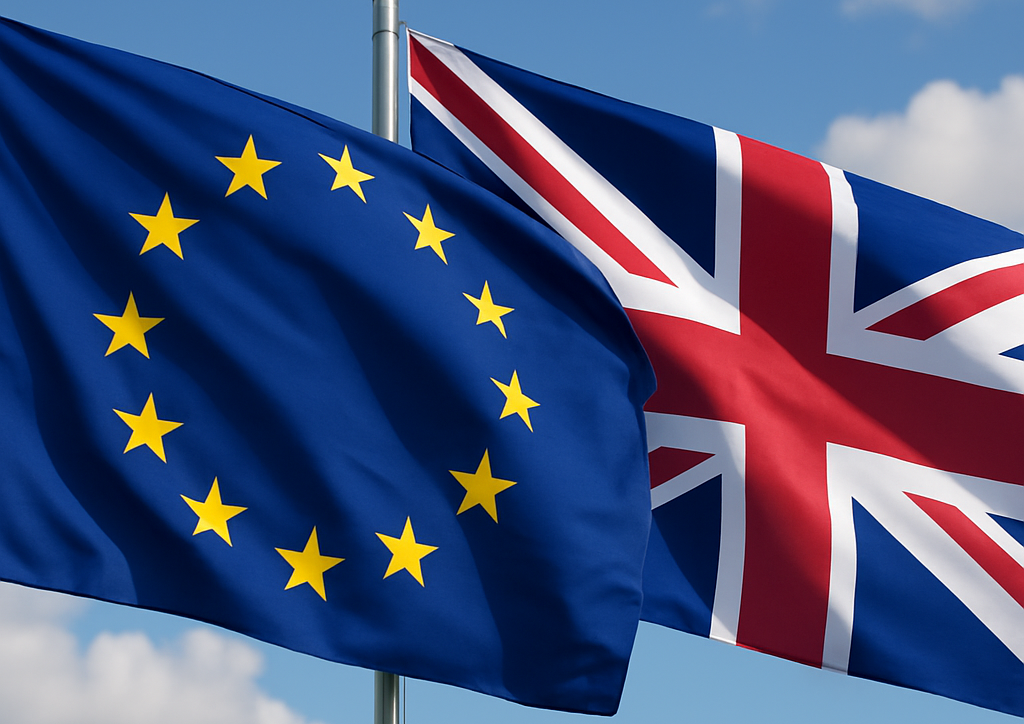
The United Kingdom and the European Union have reached a significant agreement to ease trade restrictions on food, plant, and animal products, a major breakthrough after years of tensions following Brexit. The new deal, announced on Monday, introduces a sanitary and phytosanitary (SPS) framework aimed at reducing customs checks and paperwork that have disrupted trade between the two sides since Britain’s departure from the bloc.
Under the agreement, most food, plant, and animal products will be able to move between Great Britain and the EU without routine border inspections or health certificates. According to Downing Street, this measure is designed to “allow goods to flow freely again” and ease the administrative burdens that have caused delays and raised costs for businesses on both sides of the Channel.
The UK government estimates the deal could add nearly £9 billion ($12 billion) to the British economy by 2040. The agreement also links the emissions trading systems of both sides, which will exempt British companies from the EU’s carbon border tax on imports.
Reducing red tape in cross-border trade has been a top priority for the UK. The EU remains Britain’s largest trading partner, accounting for 41 percent of UK exports and over half of its imports. Since 2020, British exports to the bloc have fallen by 21 percent while imports have dropped by seven percent. The new SPS measures are expected to ease these difficulties and stabilize trade flows.
European Commission President Ursula von der Leyen welcomed the deal, saying it would bring “more certainty, more stability for farmers and food producers, and fishermen and fisherwomen, on both sides of the Channel.” The agreement also extends EU fishing boats’ access to British waters for an additional 12 years beyond the existing arrangement while opening up Europe’s electricity market to the UK — a move von der Leyen praised for boosting energy security and lowering prices.
Prime Minister Keir Starmer, who has made repairing relations with Brussels a key priority since taking office last year, said the deal marks a turning point. “This is about making people better off, making the country more secure, and creating more jobs in the UK,” Trade Secretary Jonathan Reynolds told local media.
Despite the warming ties, both sides have remained firm on key positions. The UK has ruled out rejoining the EU’s single market, customs union, or agreeing to the free movement of people — cornerstones of the EU’s economic framework. Starmer’s office emphasized that while the new trade rules would “lower food prices and increase choice on supermarket shelves,” they respect the government’s post-Brexit commitments.
Beyond trade, the deal covers broader areas of cooperation, including defense and security coordination. Both sides noted their continued alignment in responding to global challenges, notably the conflict in Ukraine and shifts in U.S. foreign policy following the return of President Donald Trump.
The agreement signals a fresh chapter in UK-EU relations, offering hope for businesses, consumers, and professionals affected by post-Brexit hurdles.
